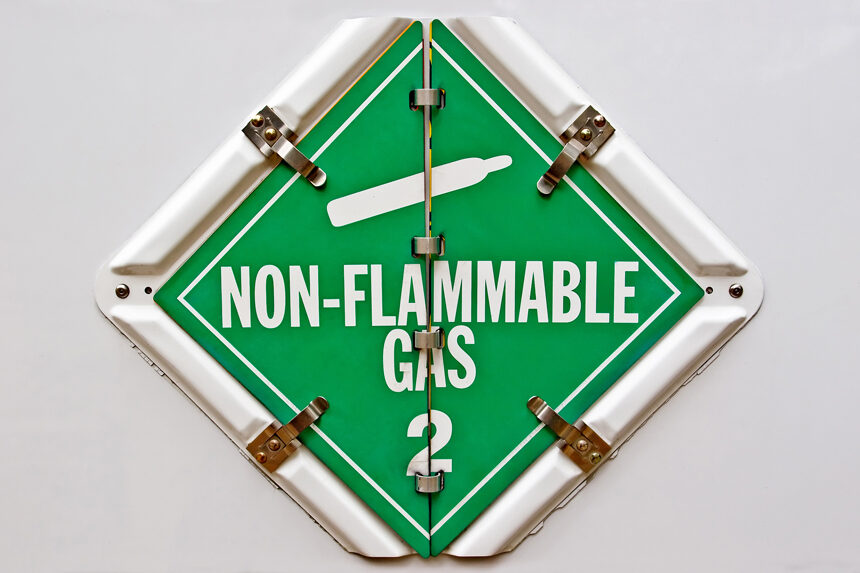Managing editor and logophile Andy Hollandbeck reveals the sometimes surprising roots of common English words and phrases. Remember: Etymology tells us where a word comes from, but not what it means today.
Whether on the road, in a laboratory, or under the kitchen sink, understanding which chemicals pose a fire hazard — and quickly — is very important. But, English being the weird puppy that it is, there are three related words that describe only two categories of fire danger: flammable, inflammable, and nonflammable. How did we get to this confusion?
Latin has the noun flamma, which means (and is the source of the word) “flame.” From that noun came the verb flammare “to flame,” that is, “to set on fire.” But those wacky Romans also appended the prefix in-, which can mean “in” or “to cause to be,” onto flammare. Inflammare, then, also meant “to cause to be on fire”; common practice probably dictated in which situations each word was most appropriate. Inflammare, however, took on a second metaphorical sense of “to rouse one’s passions.”
So when inflame (and sometimes enflame) began to appear in the written record of English in the mid-1300s — via the Old French enflamer — it could mean either “to set on fire” or “to excite or arouse.” By and large, though, the figurative sense was the more well-known and widely used.
Inflammable wasn’t recorded until around 1600, and that’s when the problems started. Though it, too, had a figurative sense (“irascible, easily angered”), inflammable more often referred to something that could literally be set on fire.
The problem, of course, is that the prefix in- meaning “to cause to be” or just “in” wasn’t terribly common, and when it did appear, it was often in an assimilated form — for example, irradiated and impassioned. The in- prefix more commonly meant “not,” as in incorruptible, indiscreet, and inanimate.
Making things worse, there wasn’t a common word built from the same (in)flammare root that meant the opposite of inflammable. Similar multisyllabic words usually came in opposing pairs: considerate/inconsiderate, distinguishable/indistinguishable. What word, then, is the opposite of inflammable?
How about incombustible — a word that appeared in the written record in the 1400s? That’s right, incombustible and inflammable are antonyms, but, as we’ll see, combustible and flammable are synonyms.
English is weird. We know this.
In 1813, something else happened that, depending on your viewpoint, either cleared up or further muddied the situation: A scholar translating a Latin text into English introduced flammable, based on flammare. He coined the word flammable, though he might not have realized it at the time.
But because it was more immediately understood, people started using it. And as flammable became common, it looked more and more like the opposite of inflammable.
The “replacement” antonym nonflammable appeared on the scene in 1898, and it, too, gained popularity. By the mid-20th century, flammable had overtaken inflammable in common English use, and it’s the word many fire safety codes now call for.
Which is why, today, you’re more likely to see flammable or nonflammable on a warning sign than inflammable. After all, you really don’t want to confuse people about possible danger.
To sum up:
- Flammable and inflammable are synonymous.
- In the general parlance, inflammable and incombustible are opposites, but flammable and combustible are synonyms.
- Nonflammable is the youngest of the three words, appearing just before the start of the 20th century.
And just to add a level of complication: In some professions, putting up the wrong safety sign could be a fireable offense.
Become a Saturday Evening Post member and enjoy unlimited access. Subscribe now




Comments
You’re right Andy, it is weird and confusing; even on a 2nd read now from the other day. You explain it very well, so it’s not you. It’s the damn prefixes! If something is flammable or combustible, it’s best to steer clear of it.